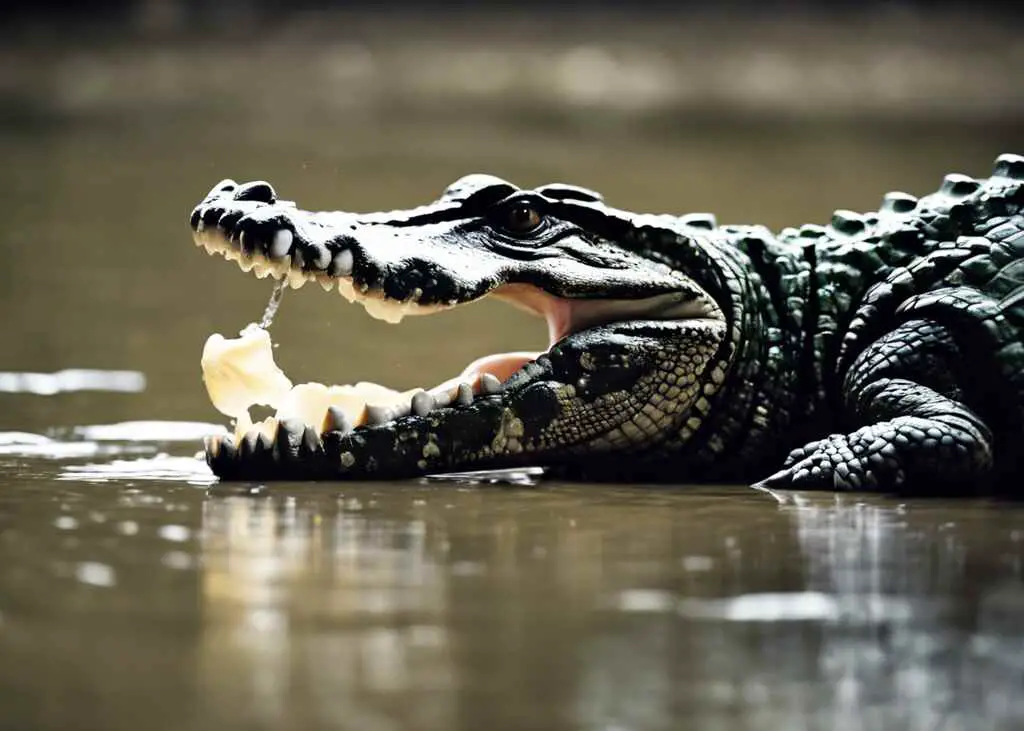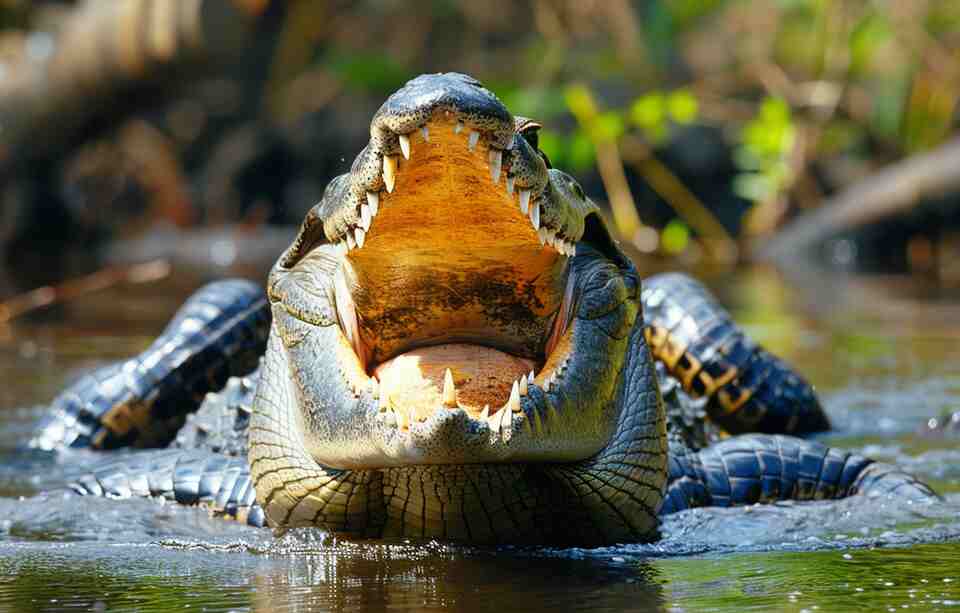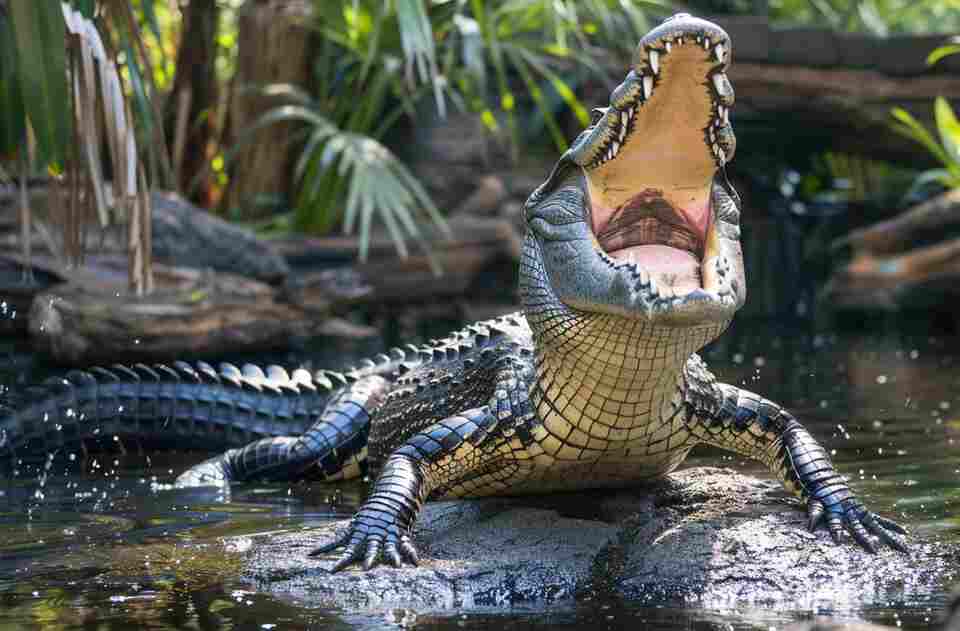In the natural world, some of the most intriguing relationships arise between unlikely partners. One such fascinating interaction is the behavior of birds cleaning crocodiles’ teeth. At first glance, this might seem like a dangerous endeavor for the birds, yet it is a common and mutually beneficial practice.
In this article, we will explore the reasons behind this unique behavior, delving into the symbiotic relationship that allows both birds and crocodiles to thrive. Through understanding this interaction, we gain deeper insight into the complexity and interdependence of ecosystems.
Table of Contents
Reasons Why Birds Clean Crocodiles’ Teeth
Birds cleaning crocodiles’ teeth might seem like an unusual phenomenon, but there are fascinating reasons behind this behavior that showcase the intricate relationships and dependencies in nature.
Unlikely Dental Hygienists: A Symbiotic Relationship
The unique behavior of birds cleaning crocodiles’ teeth is a prime example of symbiosis in nature. In certain ecosystems, such as rivers or marshlands, crocodiles often have a hard time keeping their teeth clean due to leftover food particles getting stuck. This is where the birds come in. By picking the food remnants from between the crocodile’s teeth, the birds provide a valuable cleaning service, preventing infections and promoting overall dental health for the crocodiles.
Mutual Benefits: A Win-Win Situation
While it may seem like the birds are taking a considerable risk by entering the mouth of a crocodile, this behavior actually benefits both parties. Crocodiles have a reputation for being fierce predators, but when it comes to these cleaning birds, they exhibit surprising tolerance. The birds get a source of food from the leftovers in the crocodile’s teeth, while the crocodiles enjoy improved oral hygiene. This mutually beneficial relationship highlights the intricacies of coexistence in the animal kingdom.
Species Cooperation: An Evolutionary Strategy
The phenomenon of birds cleaning crocodiles’ teeth also sheds light on how different species can cooperate for mutual gain. Evolution has shaped this behavior over time, with both birds and crocodiles adapting to each other’s presence. For the birds, the ability to access food easily from the crocodile’s teeth provides a unique advantage. On the other hand, crocodiles benefit from having cleaner teeth, reducing the risk of dental issues that could impact their hunting abilities.
Ecological Balance: A Natural Harmony
Beyond the immediate benefits to birds and crocodiles, the act of teeth-cleaning plays a role in maintaining ecological balance. By preventing infections and promoting dental health in crocodiles, the birds indirectly contribute to the overall well-being of the ecosystem. A healthy crocodile population means a stable predator-prey dynamic, which is vital for maintaining the ecological equilibrium of the habitat.
Conservation Implications: Protecting Mutualistic Relationships
Understanding and appreciating the relationship between birds and crocodiles can have conservation implications. Preserving habitats where these interactions occur is crucial for safeguarding not only the species directly involved but also the intricate web of connections that support biodiversity. Conservation efforts that recognize and protect mutualistic relationships help maintain the resilience and health of ecosystems.
The behavior of birds cleaning crocodiles’ teeth offers a glimpse into the complexity of nature’s interactions. It serves as a reminder of the interdependence between species and the remarkable ways in which evolution has shaped these relationships. By studying and preserving such symbiotic behaviors, we gain valuable insights into the delicate balance of the natural world.
Symbiotic Relationship Between Birds and Crocodiles in Nature
The symbiotic relationship between birds and crocodiles in nature is a fascinating example of mutualistic behavior in the animal kingdom. While it may seem unusual at first, the interaction between these two seemingly unrelated creatures serves a unique purpose for both parties involved. Let’s delve into the reasons behind why birds clean crocodiles’ teeth and how this mutually beneficial relationship has evolved over time.
Mutualistic Relationship: Birds and Crocodiles
In certain ecosystems, particularly in regions like Africa and Australia, certain bird species, known as crocodile birds or Egyptian plovers, have been observed engaging in a behavior known as “teeth cleaning.” These birds enter the open mouths of crocodiles fearlessly, picking food particles and parasites from between the crocodiles’ teeth. While this behavior may appear risky, it actually benefits both the birds and the crocodiles.
Why Do Birds Clean Crocodiles’ Teeth?
1. Food Source
For the birds, the crocodile’s mouth serves as a rich source of food. By feeding on the decaying meat and parasites present in the crocodile’s teeth, the birds get an easy meal without having to hunt extensively. This behavior is particularly beneficial for the birds, especially during times when food sources are scarce in their surroundings.
2. Dental Hygiene
Interestingly, the crocodiles also benefit from this relationship. As the birds forage in their mouths, they help clean the crocodiles’ teeth, reducing the risk of infections and dental issues. This cleaning action is akin to what a toothbrush does for humans, albeit in a more unconventional way. By allowing the birds to clean their teeth, crocodiles maintain better oral health, which is crucial for their survival in the wild.
Evolution of the Relationship
The symbiotic relationship between birds and crocodiles has evolved over time through a process known as coevolution. As both species adapted to their environment, they found unique ways to coexist and benefit from each other. This relationship highlights nature’s ability to create harmonious interactions between different organisms, showcasing the intricate balance of ecosystems.
Conservation Significance
Understanding the dynamics of the relationship between birds and crocodiles is not only intriguing from a scientific perspective but also holds conservation significance. By studying how these two species interact and depend on each other, researchers can gain insights into preserving their natural habitats and ensuring the biodiversity of these ecosystems.
The behavior of birds cleaning crocodiles’ teeth exemplifies the intricate connections present in nature. This mutually beneficial relationship showcases how different species can coexist and thrive together, highlighting the beauty and complexity of the natural world. As we continue to explore and appreciate such symbiotic interactions, we gain a deeper understanding of the delicate balance that sustains life on our planet.
Conclusion
The symbiotic relationship between birds and crocodiles in nature is a fascinating display of mutual benefit and cooperation. The reasons behind why birds clean crocodiles’ teeth go beyond mere surface explanations. It is a complex interplay of ecological dynamics that highlight the intricate balance of nature.
As we have explored, the act of birds cleaning crocodiles’ teeth serves a crucial purpose for both species. For the birds, it provides a source of food and nutrients that are essential for their survival. By removing food debris and parasites from the crocodiles’ teeth, the birds ensure their own sustenance while also promoting the dental health of the crocodiles.
On the other hand, crocodiles benefit from this symbiotic relationship by gaining access to a natural cleaning service that helps prevent infections and diseases in their mouths. By allowing birds to clean their teeth, crocodiles enhance their overall oral hygiene and reduce the risk of potential health issues that could arise from dental neglect.
This unique partnership between birds and crocodiles underscores the interconnectedness of species in the natural world. It exemplifies how different animals can coexist and even rely on each other for survival. In a world where competition for resources is fierce, symbiotic relationships like the one between birds and crocodiles demonstrate the power of collaboration in maintaining ecological harmony.
Moreover, the phenomenon of birds cleaning crocodiles’ teeth sheds light on the adaptability and intelligence of animals in utilizing unconventional methods to meet their needs. Through evolutionary processes, both birds and crocodiles have developed behaviors that maximize their chances of thriving in their respective environments.
As we marvel at the intricacies of nature and the wonders of the animal kingdom, it is essential to recognize and appreciate the roles that each species plays in maintaining the delicate balance of ecosystems. The symbiotic relationship between birds and crocodiles serves as a reminder of the beauty and complexity of the natural world, where even the most unlikely partnerships can yield remarkable outcomes.
In the grand tapestry of life, every interaction and connection between species carries significance and contributes to the rich diversity of the planet. By studying and understanding the reasons behind unique behaviors such as birds cleaning crocodiles’ teeth, we gain a deeper appreciation for the intricacies of nature and the interdependence of all living beings. Let us continue to explore and cherish the wonders of the natural world, where surprises and marvels await those who seek to understand its mysteries.




